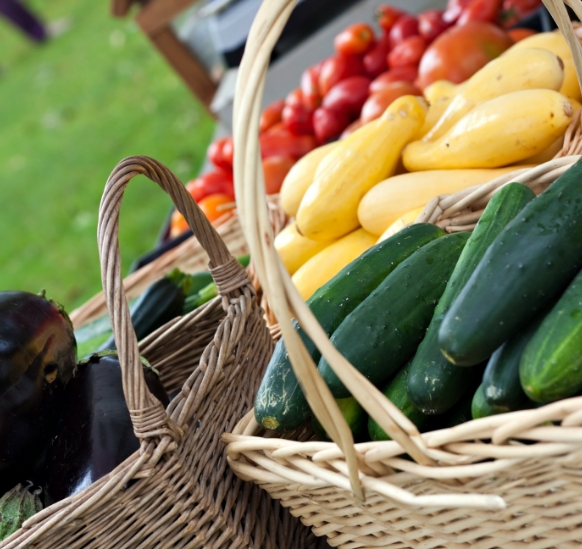Why is it Important to Eat Sustainably?
Nearly one quarter of global greenhouse emissions come from food-associated sources 1, and our overconsumption of meat has taken a heavy toll on the planet through overfishing and deforestation to make room for livestock and the crops to feed them. Although plenty of food is produced to feed everyone on earth, a staggering 811 million people 2, more than 10 percent of the world’s population, go to bed hungry every night.
When we hear the word ‘sustainability’ associated with food, it can bring to mind overpriced organic or heirloom produce that many of us simply do not have the budget for. With the pressures of the ongoing cost-of-living crisis, inflated energy prices and unstable supply chains, you may feel that eating sustainably is not an option. However, if done right, it can actually be a cheaper and more nutritious way of eating for you and your family.
Eat More Plants:
Although meat and fish are plentiful commodities these days, we have not always had it in such large quantities the way we do now. Between 1992 and 2016, meat consumption rose by 500%, and as of 2021, 90% of fish stocks were overfished 1. This overindulgence has significantly impacted global ecosystems and created an unsustainable dependence on meat that is now a part of our culture.
Switching to an entirely plant-based diet is not realistic or easy for many people, however, and you don’t necessarily have to. Start by introducing plant-based meals just once or twice a week, and you may find that it is not only a delicious and nutritious option, but a cost-saving one as well. Skip the expensive meat substitutes like Quorn or Beyond Meat and opt for meals that are naturally vegan or vegetarian. Check out this website 3 for some brilliant meatless recipe ideas that you can incorporate in your weekly menu!
Reduce Your Food Waste:
Food waste is a major contributor to greenhouse gases as it not only releases methane as it decomposes, but also wastes the enormous amount of energy, water, time and resources it took to grow, process and prepare it. Up to 36 million tonnes of greenhouse gas emissions 4 could be saved in the UK alone by limiting the food that ends up in our bins. With food and energy prices at inflated rates in many countries around the world, it is also beneficial to your bank balance to take more care to prepare and store your food responsibly so that it lasts longer.
Planning your meals ahead is one of the best ways to ensure that you stay on budget and use up all the food in your shop. Many food items such as bread and milk can be frozen to keep them fresh for longer, while unused vegetables and fruits can be repurposed in other recipes to save them from being binned. This website 4 has lots of ideas on how to reduce your food waste and even contains an archive of delicious and nutritious recipes aimed at helping you use up your leftovers. If you are cooking for yourself or just a few people, you can also consider batch cooking a few of your meals to help you save on energy bills.
Reduce Plastic in Your Food Shop
During your next food shop, have a closer look at what your food is wrapped in and see if there are any ways you could reduce the amount of plastic packaging that you purchase, particularly for fruit and vegetables. One great tip to reduce packaging waste is to buy dried goods such as pasta, rice or flour in bulk bags, as they are often cheaper and use less plastic. Don’t forget to bring reusable carrier bags with you to the shop to avoid having to purchase new ones.
If you want to take your plastic reduction to another level, you can also check out your local area to see if there is a zero-waste store nearby. Many household staples can be purchased in these shops, where you bring your own containers to fill up with the products that you need and pay for them based on weight.
Buy Local and Eat Seasonally
Local vegetable markets and farm shops are a great way to buy plastic-free produce at cheap prices, especially if they are in season. This website 5 has an extremely helpful calendar to let you check what fruits and vegetables are in season at any time of the year, so you can tailor your meals to include the freshest and tastiest products that do not have to be imported from overseas. Turn up to the vegetable market near closing time and you may even get a discount on your items!
References:
1.) wwf.org.uk/betterbasket
2.) weforum.org/sustainable-food-system-solutions
3.) lowlyfood.com/recipes
4.) lovefoodhatewaste.com/good-food-habits
5.) eatseasonably.co.uk

Eat Sustainably: Save the Planet and Your Wallet!

First published on 700115